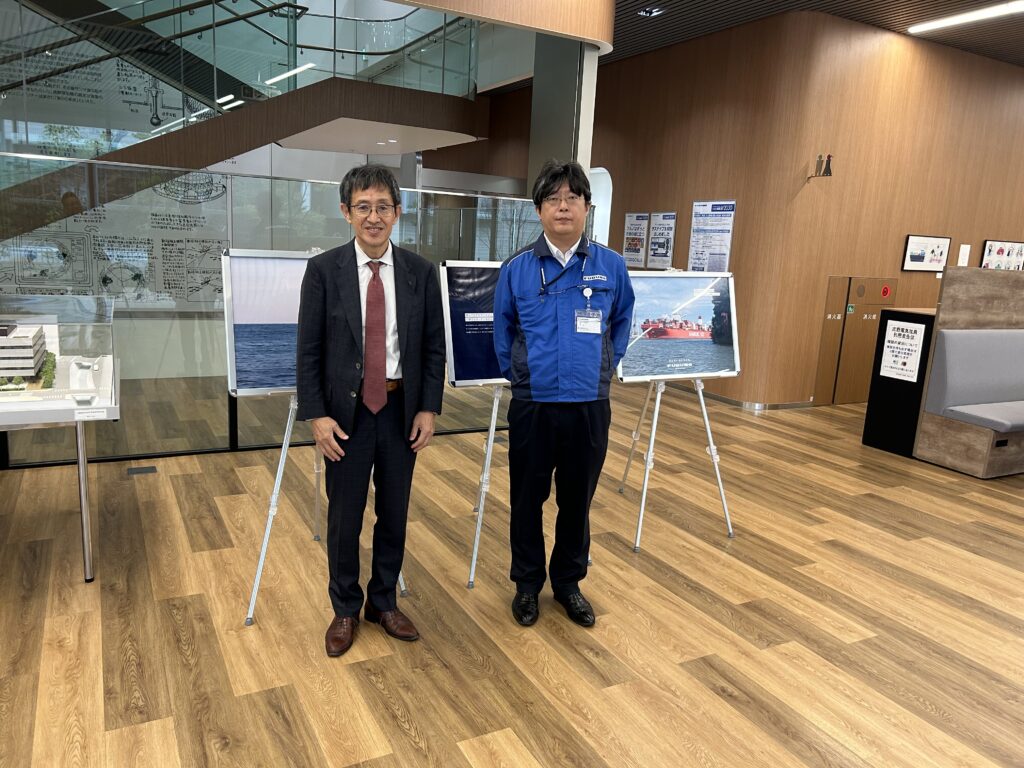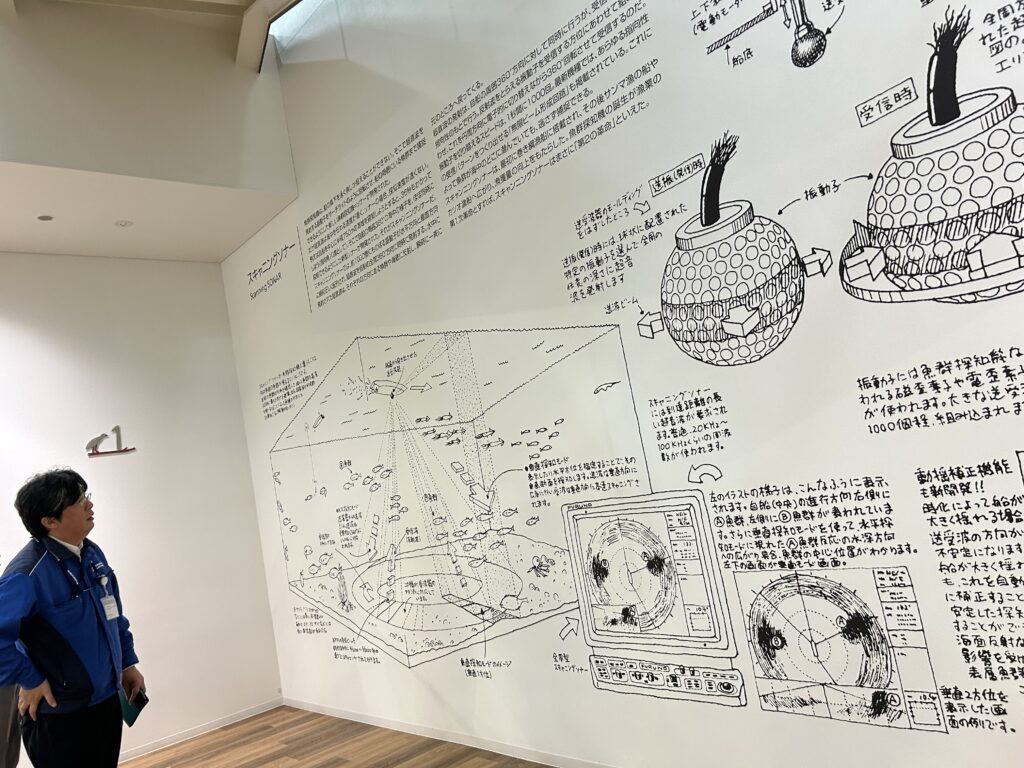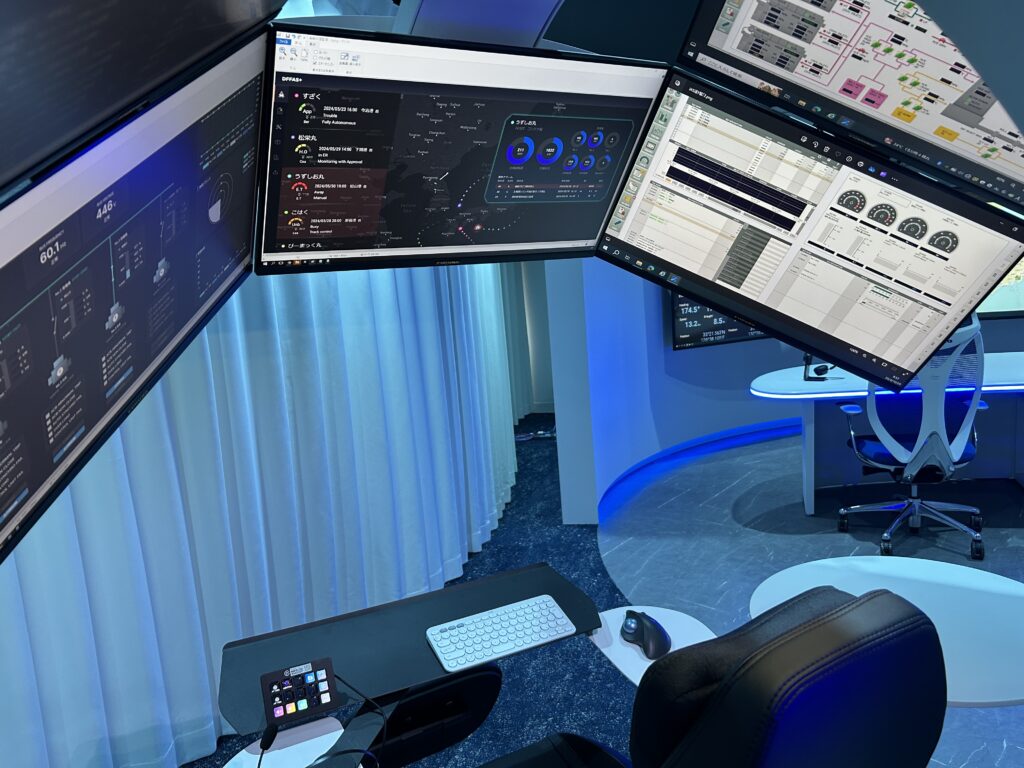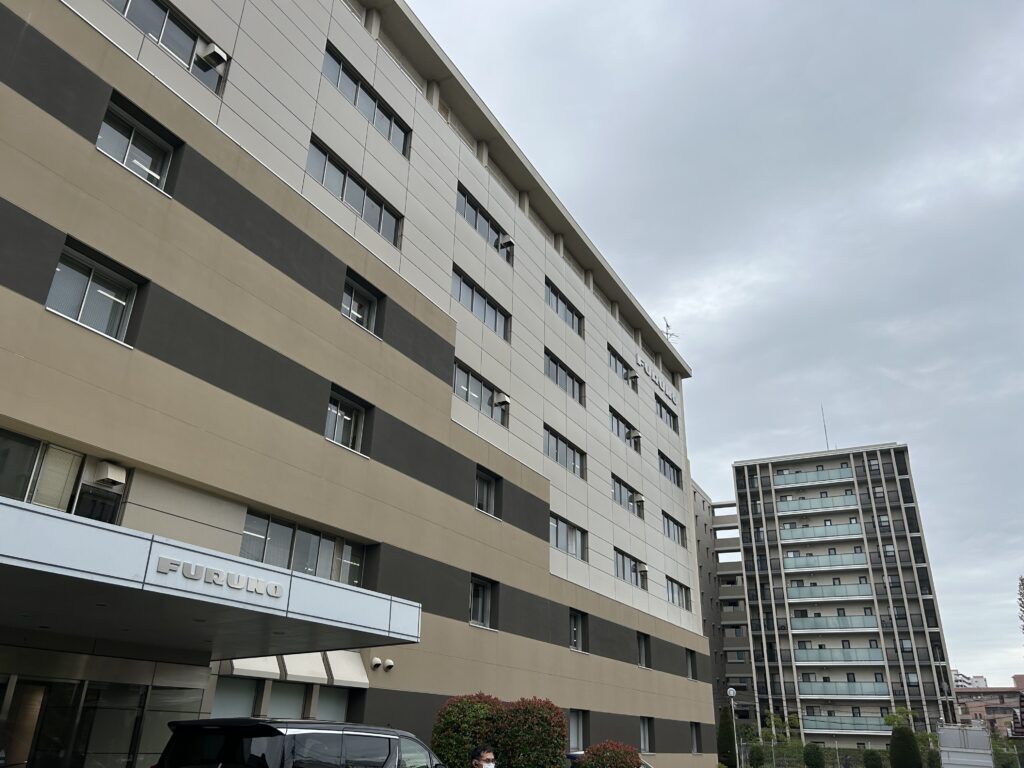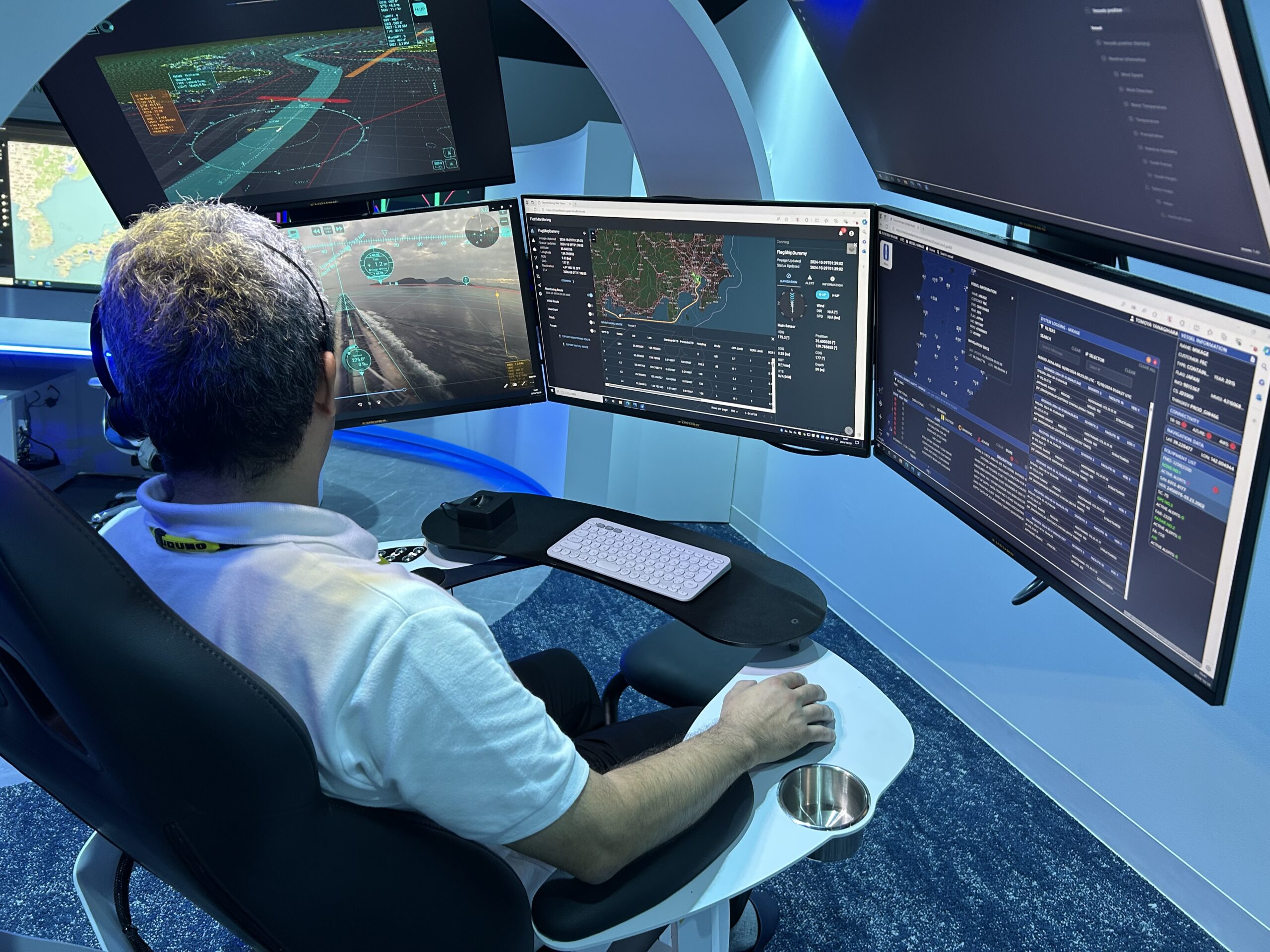The second stage of Japan’s “Fully Autonomous Ship Project” under the MEGURI2040 initiative will enter its final phase with full-scale demonstration trials starting in October 2025. Backed by a united “All-Japan” effort, this project is a bold step toward achieving practical implementation of fully autonomous ship technology.

The Nippon Foundation’s “MEGURI2040” initiative began in 2020 and has now reached its second stage. Building on the results of the “Joint Program for the Development of Technologies for Demonstration of Unmanned Ships” conducted during the first stage, the foundation and the DFFAS+ (Designing the Future of Full Autonomous Ship) Consortium, comprising 53 companies, are jointly working to achieve full-scale practical applications.
(Text by Hirofumi Yamamoto)
Photo courtesy= DFFAS+, Hirofumi Yamamoto
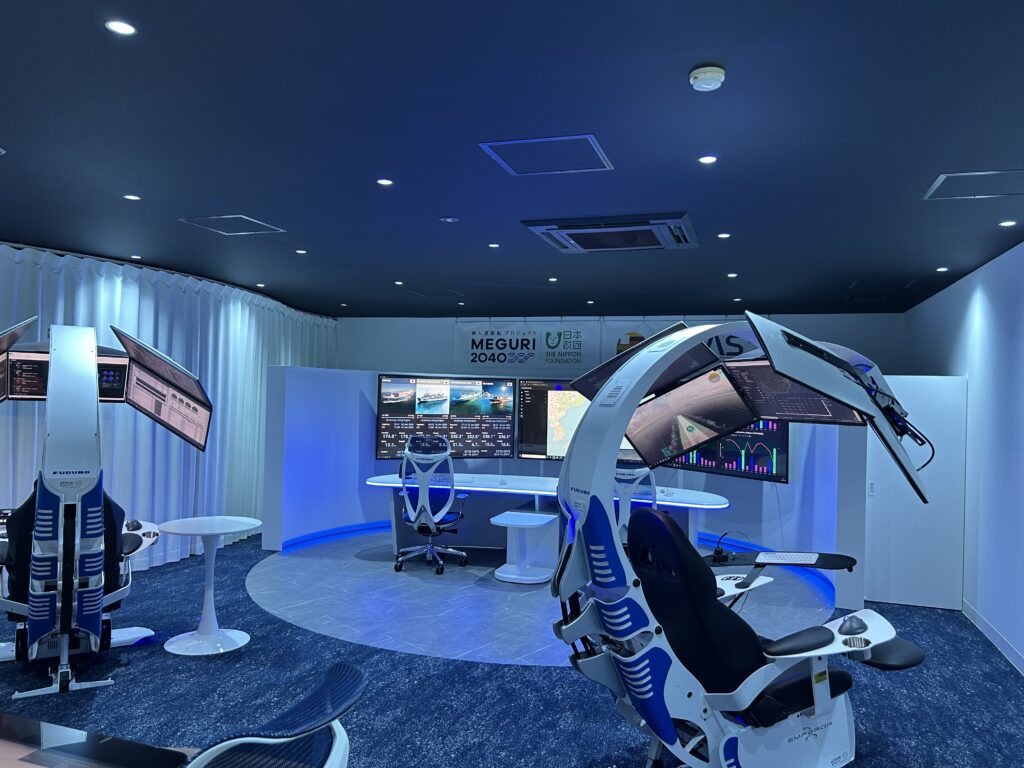
■ Cutting-edge monitoring Center at FURUNO ELECTRIC
The monitoring room at FURUNO ELECTRIC’s headquarters in Nishinomiya, Hyogo Prefecture, is equipped with state-of-the-art devices, resembling the futuristic cockpit of an e-sports arena.
Satoru Kuwahara, Executive Officer at Japan Marine Science and Project Director of the DFFAS+ Consortium, works onsite at the FURUNO ELECTRIC headquarters. “From land, we monitor the vessel remotely,” explains Kuwahara. “Even nautical charts are entirely paperless. By setting departure and destination points on electronic charts, we can determine the optimal route considering a variety of information from both the vessel and the land.”
■Four Vessels for Demonstration Trials
Starting in October 2025, MEGURI2040 will conduct demonstration trials using four autonomous vessels as part of its commitment to innovation in the maritime industry. These trials will involve various routes, including island supply chains and urban transport, aiming to establish next-generation logistics models for Japan’s maritime sector.
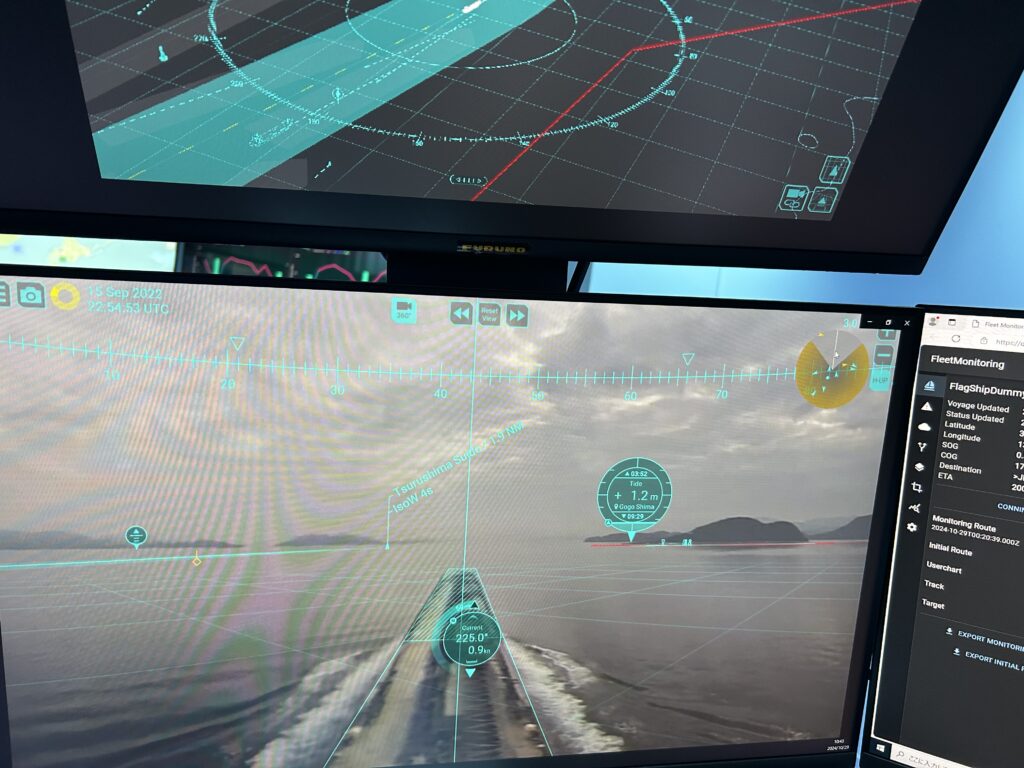
Key projects include:
1. Newly Built Container Ship: Constructed by Kyokuyo Shipyard Corporation in Shimonoseki, Yamaguchi Prefecture, this vessel, equipped with a full-package unmanned navigation system, will commence operations in September 2025.
2. RORO Cargo Ship: Using Kawasaki Kinkai Kisen Kaisha’s “Daini Hokuren Maru” for a 1,600 km round-trip route between Kushiro (Hokkaido) and Hitachi (Ibaraki) in June 2025.
3. Domestic Container Ship: A vessel operated by Imoto Lines to test operational efficiency starting in July 2025.
4. Passenger Ferry: “Olympia Dream Seto,” operated by Kokusai Ryobi Ferry between Okayama and Shodoshima, with enhanced shore-based support systems while maintaining manned operations from August 2025.
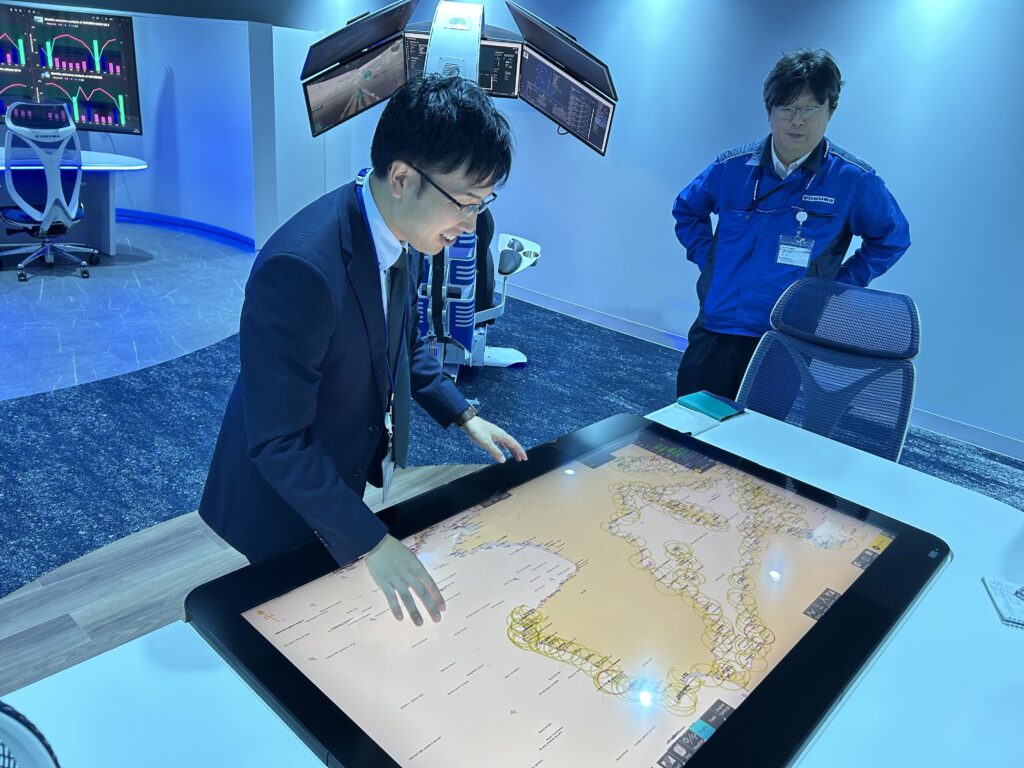
■ Land-Based Support Center
A new land-based support center has been established within the FURUNO ELECTRIC headquarters to monitor vessel operations and provide immediate response to any abnormalities. Communication infrastructure includes LTE networks for coastal areas and satellite communication for offshore operations to ensure stable connectivity.
■Challenges and Global Attention
Japan’s autonomous ship project has garnered global attention for its advanced approach, with multiple countries such as Europe and South Korea also pursuing similar initiatives. However, Japan faces domestic challenges, including delayed legislative progress compared to other nations, highlighting the need for regulatory reforms alongside technological development.
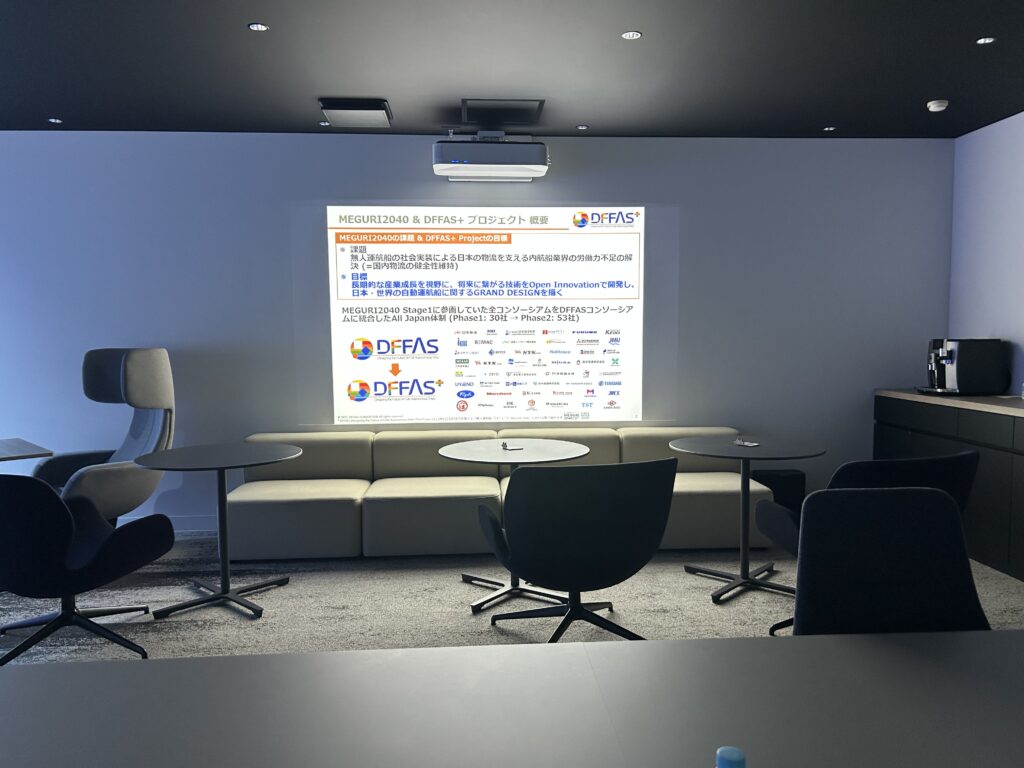
■Outlook and Goals
Following nine months of trial operations starting in 2025, commercial implementation of unmanned vessels is planned for 2026. The project envisions supporting remote islands and regional transportation infrastructure with autonomous technologies.
MEGURI2040 aims to achieve automation levels equivalent to Level 4 self-driving capabilities. The accumulated expertise of Japanese shipbuilding, maritime equipment manufacturers, and shipping industries will not only advance autonomous navigation but also enhance safety for crewed vessels.
Japan’s “All-Japan” technological initiative is poised to lead the global unmanned ship industry, paving the way for a sustainable, innovative future in maritime logistics.

〆MEGURI2040、2025年10月から実証実験の本格化を開始する。無人運航船(Fully Autonomous Ship Project)の第2ステージ、オールジャパン結束で挑戦する。
日本財団(The Nippon Foundation)の無人運航船プロジェクト「MEGURI2040」(Fully Autonomous Ship Project MEGURI2040)の第2ステージの仕上げとなる実証実験が2025年10月からスタートする。このプログラムは、2020年から始まった同プロジェクトの第2ステージとして位置付けられる。第1ステージで実施された「無人運航船の実証実験にかかる技術開発共同プログラム」で培った無人運航船技術の本格的な実用化を、日本財団と同プロジェクトを支援するコンソーシアム「DFFAS(Designing the Future of Full Autonomous Ship)+」(53社で構成)のオールジャパン体制で共に目指す。(Text by Hirofumi Yamamoto)
Photo courtesy= DFFAS+, Hirofumi Yamamoto
※日本語記事の続きは日本海事新聞でお読みください。
